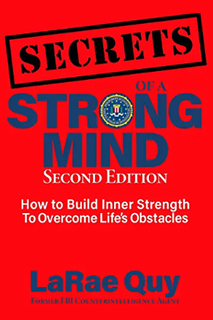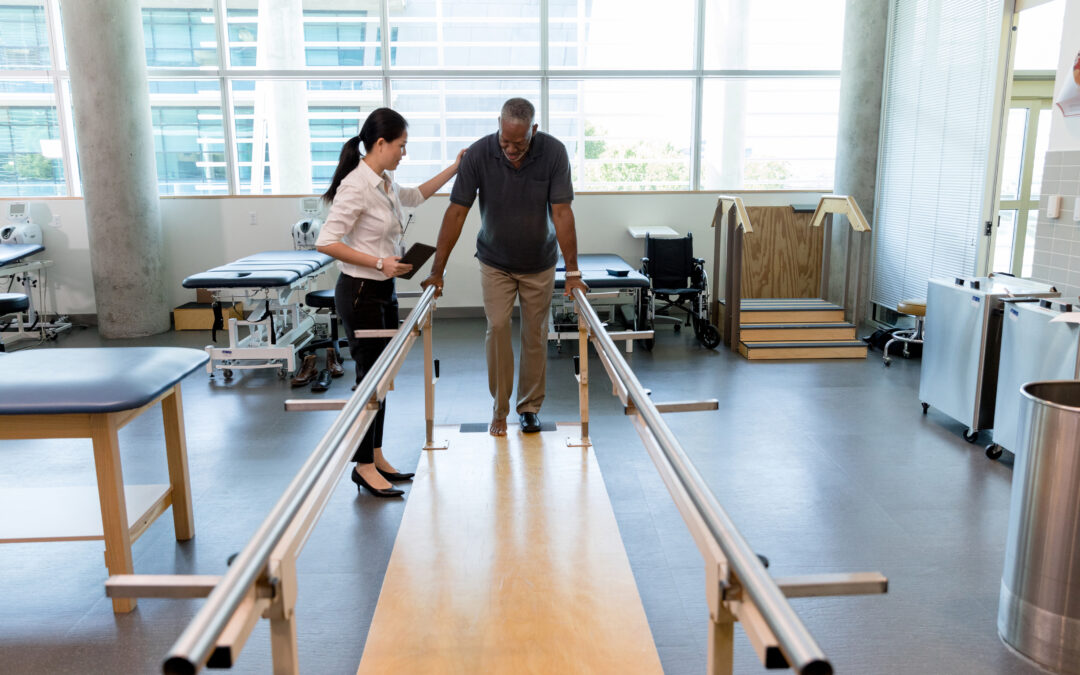The FBI requires agents to take annual physicals, including a treadmill test every few years. That year was my time for the examination. Dr. General (his first name, believe it or not) hooked me up so he could follow my heart and lung responses. I was panting along at my usual pace when the doctor burst into the room and demanded that I stop immediately and get off the treadmill.
I was scared to death, and when I asked Dr. General what was wrong, he barked out that I had ischemia and should not exert myself until I saw a heart specialist.
He left the room without bothering to explain ischemia, so I looked it up when I got home and discovered it’s a condition where the heart cannot get enough oxygen. The usual outcome is that the heart stops abruptly or finds a way to get enough oxygenated blood to keep it going. It turned out that my heart compensates by gulping oxygen, so I was in no danger of dropping dead.
Dr. General’s lack of ability to respond to my emotions or understand them left me petrified—until I could see a heart specialist. The General could have done much better if only he were more self-aware and empathic.
It takes a strong mind to be empathetic in difficult situations. Are you mentally tough? Take this evidence-based, FREE Mental Toughness Assessment.
Here is how emotional intelligence can empower physicians to be more effective:
1. Creates self-awareness
Recent research highlights the importance of self-awareness in physicians to recognize the emotions they’re experiencing and learn how to manage them. Unrecognized emotions may impede patient-centered skills that would ordinarily be utilized. They may be associated with harmful behaviors, such as inappropriately interrupting the patient, changing the subject, evading patients’ psychological issues, not bonding with patients, or avoiding patients altogether.
Unexplored feelings may lead to distress, poor judgment, social isolation, increased workload, risk of litigation, burnout, reduced work satisfaction, and increased alcohol or other substance use.
Emotional awareness is harnessing and applying emotions to tasks like thinking and problem-solving. Self-regulation is the ability to manage one’s feelings, which includes cheering up or calming down other people.
Decisions made under the influence of emotions can significantly affect patient safety, outcomes, and healthcare quality. However, when individuals recognize their emotions, they can better regulate and use them.
Self-awareness allows individuals to remove personal biases from the decision-making process and provide care based on what’s best for the patient. Regulating one’s emotions enables physicians to develop a more positive influence on patient care.
Lack of self-awareness has been associated with medical errors. The top 4 reported emotional responses by physicians in this study of patient incidents were frustration (48.3%), embarrassment (31.5%), anger (12.6%), and guilt (10.1%).
If we are self-aware, we recognize the full range of our emotions for what they truly are and not pretend the ugly ones don’t exist. Emotions are inconvenient because they often warp into difficult ones like embarrassment, remorse, and guilt. We want to move toward what feels good and away from what feels bad. It’s normal. We need to understand that emotions connect us to things in life that are important to us.
It’s far too simplistic and childish to divide our emotions into two piles: good and bad. If we try to judge them, we lose our ability to be aware of them. We avoid bad emotions because we don’t want them. We may feel ashamed to acknowledge a negative reaction. We regard good emotions as positive and something we want. We may not monitor them as we should because, hey, all good emotions are friends, right? Unfortunately, the relentless pursuit of only positive feelings produces a hedonistic lifestyle that’s not based on reality.
It requires mental toughness to be self-aware. Take this evidence-based, FREE Mental Toughness Assessment.
How to make it work for you: Studies show that many physicians use breathing to cope with their emotions when with patients. Here is how to make maximum use of the breathing technique:
- A deep breath brings more oxygen to the brain, which helps cognitive function.
- Deep breathing allows the slower, thinking brain to catch up with the faster emotional drama queen brain (limbic system).
- Once your thinking brain is up to speed, don’t judge your emotions; instead, recognize every emotion but don’t place it into a good or bad pile.
- Observe it, let it run its course, and remind yourself that the feeling was there to help you understand something about yourself. You need both good and bad emotions to function as a healthy human being in this world.
2. Develops empathy

Dr. General expressed no emotion when he ordered me off the treadmill, but he’s not the only physician who has failed to exhibit empathy in the presence of their patients.
People with empathy are good at recognizing the feelings of others, even when those feelings may not be obvious. As a result, empathetic people are usually excellent at managing relationships, listening, and relating to others. They avoid stereotyping and judging too quickly and live their lives openly and honestly.
Emotional intelligence can significantly influence patient outcomes and an organization’s overall success. Medical professionals can provide better patient outcomes by being empathetic and improving interactions and relationships with patients. Studies have also shown that emotional intelligence can also positively impact healthcare staff.
To develop empathy and avoid compassion fatigue with patients, it’s important to reflect on the patient’s feelings or experience without necessarily trying to feel it yourself. According to psychologist Michael Poulin, empathy is putting yourself in the proper role. The physician isn’t to be the sufferer but to be the caregiver.
Empathy is essential for physicians because it:
1. Builds patient trust. Research has shown empathy and compassion lead to more effective medication outcomes, decreased malpractice cases, fewer mistakes, and increased patient satisfaction.
2. Calms anxiety. Empathy in a clinical context is the physician’s ability to understand patients’ emotions. This differs from sympathy or sharing patients’ emotions, which can hinder objective diagnoses and effective treatment. A systematic review of the literature on the effects of empathy concluded that empathy helps to decrease anxiety and stress, leads to better medication adherence, and strengthens patients’ resolve.
3. Decreases malpractice cases. Studies have shown that empathy is an essential aspect of provider communication. Feeling a patient’s emotions will help a provider deliver more compassionate care and make the patient feel more confident in their care.
How to make it work for you:
Read fiction: The more you can relate to fictional characters, the more you practice empathy. You can listen to other people’s experiences and believe they’re valid. You don’t have to deny your own experience to accept someone else’s.
Ask Questions: Empathy isn’t mind reading. It’s more about actively trying to appreciate someone else’s point of view. If you’re in a situation and struggling with empathy, ask questions and be curious so you understand it better.
© 2023 LaRae Quy. All rights reserved.
You can follow me on Twitter, Facebook, Instagram, AND LinkedIn
Are you mentally tough? Take this evidence-based, FREE Mental Toughness Assessment.
Check out my new online training program at www.SecretsOfAStrongMind.com
Get my book, “Secrets of a Strong Mind (second edition): How To Build Inner Strength To Overcome Life’s Obstacles”

Author of “Mental Toughness for Women Leaders: 52 Tips To Recognize and Utilize Your Greatest Strengths”



Recent Comments